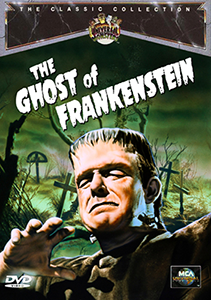The Enduring Legacy of the Frankenstein Movie

Introduction
The Frankenstein movie, based on Mary Shelley’s groundbreaking novel, has become a cornerstone of horror cinema since its first adaptation in 1931. This cinematic portrayal of Victor Frankenstein and his monstrous creation has not only shaped the genre but has also provoked discussions about ethics, humanity, and the consequences of playing God. As the latest adaptations and discussions surrounding this classic continue to emerge, it remains relevant in both popular culture and academic discourse.
The Evolution of Frankenstein on Screen
The 1931 film directed by James Whale was one of the earliest adaptations and introduced audiences to the iconic portrayal of the Monster by Boris Karloff. What made this film significant was its ability to convey complex themes of isolation, societal rejection, and the quest for understanding through a visual medium. Over the decades, several iterations of Frankenstein have surfaced, including comedy parodies, modern reimaginings, and faithful adaptations that have continued to explore the essential themes of guilt and responsibility.
Recent Developments
In recent years, filmmakers have revisited the Frankenstein narrative with a modern twist. The 2015 film “Victor Frankenstein”, featuring Daniel Radcliffe and James McAvoy, attempted to tell the story from the perspective of Igor, providing a fresh take on familiar themes. Meanwhile, a theatrical adaptation called “Frankenstein: How to Make a Monster” at the National Theatre in 2011 attracted considerable attention, showcasing the command of both storytelling and emotion in the performance. The popularity of television shows like “Penny Dreadful” and “The Frankenstein Chronicles” further exemplifies the monster’s cultural persistence.
Significance for Modern Audiences
As society faces rapid technological advances and ethical dilemmas in science, the story of Frankenstein remains a cautionary tale that resonates strongly today. Discussions surrounding artificial intelligence, genetic engineering, and bioethics on contemporary platforms echo the fears expressed in the original text. As audiences grapple with these advancements, the Frankenstein movie serves as a reflection of the human condition and our often tumultuous relationship with creation.
Conclusion
The significance of the Frankenstein movie extends beyond its status as a horror classic. It continues to engage new generations with its exploration of timeless themes related to humanity, ethics, and social alienation. As discussions on the ethical implications of modern scientific experimentation gain momentum, Frankenstein remains a vital cultural touchstone, inviting viewers to reflect on the true meaning of monstrosity and the responsibilities inherent in creation. With the possibility of future adaptations on the horizon, the legacy of Frankenstein is sure to endure, reminding us of the thin line between genius and madness.









